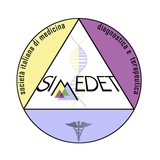Changes in #Sleep Duration, Quality, and Medication Use Are Prospectively Associated With #Health and Well-being: Analysis of the UK Household Longitudinal Study
https://academic.oup.com/sleep/article/2845958/Changes
.. Poorer outcomes were on the other hand associated with a reduction in sleep duration, a decrease in sleep quality, and an increase in sleep medication use. Changes in sleep quality yielded the largest effects on the health and well-being outcomes.
Conclusions:
Changes in sleep were temporally associated with subsequent health and well-being. Initiatives that aim to protect a critical amount of sleep, promote sleep quality, and reduce sleep medication use may have public health values.
https://academic.oup.com/sleep/article/2845958/Changes
.. Poorer outcomes were on the other hand associated with a reduction in sleep duration, a decrease in sleep quality, and an increase in sleep medication use. Changes in sleep quality yielded the largest effects on the health and well-being outcomes.
Conclusions:
Changes in sleep were temporally associated with subsequent health and well-being. Initiatives that aim to protect a critical amount of sleep, promote sleep quality, and reduce sleep medication use may have public health values.
Vital Signs: #Health Care–Associated #Legionnaires’ Disease Surveillance Data from 20 States and a Large Metropolitan Area — United States, 2015
https://www.cdc.gov/mmwr/volumes/66/wr/mm6622e1.htm
Background: Legionnaires’ disease, a severe pneumonia, is typically acquired through inhalation of aerosolized water containing Legionella bacteria. Legionella can grow in the complex water systems of buildings, including health care facilities. Effective water management programs could prevent the growth of Legionella in building water systems. Among the 21 jurisdictions, 16 (76%) reported 1–21 definite health care–associated cases per jurisdiction. Among definite health care–associated cases, the majority (75, 88%) occurred in persons aged ≥60 years, and exposures occurred at 72 facilities (15 hospitals and 57 long-term care facilities). The case fatality rate was 25% for definite and 10% for possible health care–associated Legionnaires’ disease.
Conclusions and Implications for Public Health Practice: Exposure to Legionella from health care facility water systems can result in Legionnaires’ disease. The high case fatality rate of health care–associated Legionnaires’ disease highlights the importance of case prevention and response activities, including implementation of effective water management programs and timely case identification.
https://www.cdc.gov/mmwr/volumes/66/wr/mm6622e1.htm
Background: Legionnaires’ disease, a severe pneumonia, is typically acquired through inhalation of aerosolized water containing Legionella bacteria. Legionella can grow in the complex water systems of buildings, including health care facilities. Effective water management programs could prevent the growth of Legionella in building water systems. Among the 21 jurisdictions, 16 (76%) reported 1–21 definite health care–associated cases per jurisdiction. Among definite health care–associated cases, the majority (75, 88%) occurred in persons aged ≥60 years, and exposures occurred at 72 facilities (15 hospitals and 57 long-term care facilities). The case fatality rate was 25% for definite and 10% for possible health care–associated Legionnaires’ disease.
Conclusions and Implications for Public Health Practice: Exposure to Legionella from health care facility water systems can result in Legionnaires’ disease. The high case fatality rate of health care–associated Legionnaires’ disease highlights the importance of case prevention and response activities, including implementation of effective water management programs and timely case identification.
